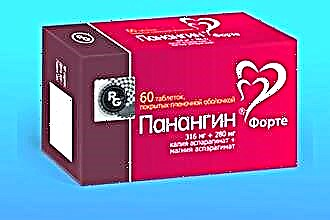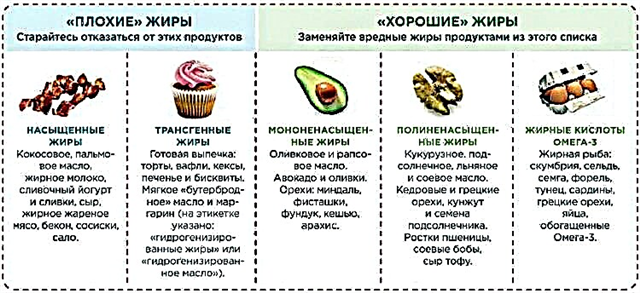How to act correctly
 Runny nose and cough in children are common complaints. They can be a manifestation of rhinitis, pharyngitis, laryngitis, tracheitis, bronchitis or pneumonia - that is, inflammation in the area of the nose, pharynx, larynx, trachea, bronchi or lungs, respectively. All of these diseases are treated in different ways and, moreover, can be of a different nature - most often infectious or allergic.
Runny nose and cough in children are common complaints. They can be a manifestation of rhinitis, pharyngitis, laryngitis, tracheitis, bronchitis or pneumonia - that is, inflammation in the area of the nose, pharynx, larynx, trachea, bronchi or lungs, respectively. All of these diseases are treated in different ways and, moreover, can be of a different nature - most often infectious or allergic.
To help a child quickly, you need to find out why he has a cough and a stuffy nose - it may well turn out that a runny nose, mistaken for a manifestation of a cold, is actually due to sensitivity to pollen or food. The establishment of the diagnosis should be entrusted to a pediatrician, who, with the help of an objective examination, analyzes and instrumental studies, will find out what is the cause of the disease.
At the same time, nasal congestion and cough in a child are most often caused by the presence of ARVI, that is, an acute respiratory viral infection. The causative agents of the disease are viruses of the respiratory group (rhinoviruses, adenoviruses, etc.), transmitted by airborne droplets or by contact. Both another child and an adult can infect a child.
The most likely area of the lesion is the nasopharynx, as a result of which an infectious and inflammatory process called "rhinopharyngitis" develops. This disease is characterized by a runny nose, sore throat, and compulsive coughing. It can be treated at home, but only after a doctor's examination and with the obligatory implementation of all the recommendations received.
If rhinitis and cough appear in a small child (under the age of 2 years), the likelihood of infection with respiratory syncytial virus and the development of bronchiolitis cannot be denied. Bronchiolitis is dangerous due to the rapid increase in symptoms of respiratory failure (shortness of breath, wheezing, episodes of respiratory arrest), requires urgent hospitalization.
A deep, painful cough with or without sputum may indicate a transition of inflammation to the lower respiratory tract. The doctor decides whether to leave the child at home or to be admitted to the hospital. It depends on the severity of the condition, the age of the patient.
A child with a runny nose and cough under the age of one year should be treated only under the supervision of a specialist - even rhinitis for such children is a dangerous disease.
Non-drug methods
If the condition of the child allows treatment at home, it is necessary to start with non-drug methods - that is, with the creation of conditions that can help to recover. It often happens that children are prescribed a lot of medications, but at the same time walks in the fresh air are canceled, ventilation of the room is excluded in order to prevent a draft. This is not the most correct tactic, because even with a cough and a runny nose, you need to breathe clean cool air, free of excess dust.
 For a child to get better as quickly as possible, it is necessary:
For a child to get better as quickly as possible, it is necessary:
- Monitor the humidity and temperature in the room.
It is better if the temperature does not exceed 18–20 ° C and the humidity is 50–70%. This is necessary so that mucus does not dry out in the respiratory tract, the phlegm remains moist and is easily removed by coughing.
- Moisten the nasal cavity with saline.
Suitable 0.65%, 0.9% sodium chloride solution, Saline and other preparations based on sea water. It is worth paying attention to the drops, they are safer than sprays. Use them every hour and a half throughout the day, or follow the instructions given by your doctor. Older children can rinse their nose with special nozzles and pears. Saline solution cleans the nasal cavity of mucus, prevents it from drying out, prepares the mucous membrane for the administration of other drugs.
- Offer warm drinks to your child.
You can drink water, tea, compote - if the child receives a sufficient amount of liquid, he will have less difficulty coughing up phlegm and clearing the nose of secretions. Drinking is necessary, especially at elevated body temperatures, when there is increased sweating.
- Offer simple, digestible foods that won't irritate the throat.
It is preferable to boil, bake in the oven, steam meat, vegetables, cereals. The diet depends on age. With a runny nose and cough, children often have a sore throat, so it is better to refuse spicy, crumbling, too hot or cold foods. If you have a fever, do not force the child to eat, but give more drink.
Walking with a cough and a runny nose is possible after the end of the acute period, if there is no fever, weakness, weather conditions allow - this excludes physical activity.
If a child is sick with ARVI, in the first few days it is better to be at home, regularly ventilate the room, carry out wet cleaning of dust - the patient needs to move to another room during this time. It is better to postpone walks until the condition is normalized, but a recovering child should not run or participate in outdoor games. It is enough to breathe air for a short time. It is worth remembering that with ARVI, the patient is a distributor of infection, therefore, contact with healthy children should not be allowed.
Cold treatment
With a cold, mainly symptomatic drugs are used - that is, drugs that can temporarily weaken the manifestations of the disease. They are not able to cure the patient, and are needed to improve the condition. Local antiseptics, oil-based products with anti-inflammatory components are also used - they are suitable for treating colds, but are contraindicated for allergies.
 What medications do you need to deal with swelling and nasal discharge? Children of different ages are prescribed different drugs, but the main pharmacological groups are:
What medications do you need to deal with swelling and nasal discharge? Children of different ages are prescribed different drugs, but the main pharmacological groups are:
- salt solutions (Aqua Maris, Salin, Aquazolin);
- decongestants, or vasoconstrictors (Xylometazoline, Phenylephrine);
- antiseptics, anti-inflammatory (Pinosol, Neonox Cyclamen);
- oil solutions (vitamin E, vitamin A).
How to cure a runny nose? Saline solutions are the safest - these drugs are even used to treat infants, help clear the nose, eliminate swelling and restore nasal breathing. They are also used before the introduction of vasoconstrictor or oil drops, antiseptics.
Decongestants are needed if the child cannot breathe through the nose due to edema, he has a significantly increased body temperature and has signs of shortness of breath. They should not be used for more than 3 days as they become addictive. You need to purchase only those drops that are allowed for use in childhood - the content of the main substance in them is reduced.
Antiseptics and anti-inflammatory drugs are needed if the child suffers from chronic rhinitis - however, you should not choose such drugs yourself, the doctor should prescribe the treatment.Oil solutions are used to prevent dryness of the mucous membrane and are not needed if humidification with saline solutions is carried out, and the microclimate in the room is satisfactory. It is better not to inject oil into the nose for small children.
Cough treatment
A cough, like a runny nose, is only a manifestation of the disease. Obsessive coughing with pharyngitis in children does not require separate treatment, since it is associated with drying out and irritation of the pharyngeal mucosa. If the cough is "chest", deep, but the discharge is viscous and thick, you may need:
- sputum thinning agents - Acetylcysteine, Lazolvan;
- expectorants - thermopsis preparations, breast preparations with marshmallow.
These drugs are sometimes called cough-improving agents - they make the sputum thinner and make it easier to cough up. However, only a doctor should prescribe such medications. The same goes for antitussive drugs (Codeine, Libeksin). Cough is an assistant in the fight against the disease, thanks to which the phlegm does not stagnate in the respiratory tract, but is excreted. It is impossible to suppress the cough reflex in any case, a cold cannot be an indication for taking antitussives.
Cough-improving medicines are not needed in the absence of phlegm, dry cough and coughing - in this case, taking is useless, leads to irritation of the respiratory tract, and can worsen the child's condition.
Do not use drugs that thin sputum to treat a wet cough in a child under 2 years old - the amount of discharge increases, but it will not be possible to cough it up.
Small children still cannot cough efficiently, productively, their cough impulse is weak. Medicines that reduce the viscosity of the secretions will work, but the increased phlegm will remain in the airways. Such treatment will not bring any benefit, therefore, the attending pediatrician should prescribe any means aimed at improving or eliminating cough.
Care should be taken with expectorants based on thermopsis, ipecac; it is better not to use them for young children. Such medications increase the likelihood of vomiting and aspiration (suction into the airways) of vomit, which is life-threatening. Any expectorant drugs work better against the background of copious drinking, since the lack of fluid affects the viscosity of the sputum. If the sputum is purulent, drugs belonging to the group of mucolytics are most effective.
Additional funds
You can cure a child's cough and runny nose by humidifying the air and nasal mucosa, normalizing the drinking regimen, and using symptomatic drugs to alleviate the condition. However, additional funds can also be recommended:
- Antibacterial drugs.
They are needed if there is an inflammation of the lower respiratory tract caused by bacterial flora - for example, pneumonia. A runny nose can only be the primary symptom that precedes the onset of a cough. Only a doctor prescribes antibiotics. If the cough and runny nose are associated with SARS, antibacterial agents will not help.
- Antiviral agents, as well as agents that affect the immune response.
These are Immunoflazid, IRS-19, and other drugs used for ARVI and acute respiratory infections of a bacterial nature. They are effective mainly at the onset of the disease, when the first symptoms appear.
- Anti-inflammatory drugs.
An example is Erespal (Fenspirid), which is effective for a variety of respiratory diseases - rhinopharyngitis, tracheitis, bronchitis. Available in the form of tablets, syrup.
- Combined preparations for the treatment of the pharyngeal mucosa.
These are local antiseptics, pain relievers, anti-inflammatory drugs that help to cope with inflammation and discomfort in the throat, weaken coughing (Faringosept, Decatilen, Falimint). It is worth paying attention to the release form of the drug, since the lozenges may be too large for a small child, and not all children are able to gargle with solutions. It is undesirable to use sprays before 5 years of age, since there is a risk of laryngospasm (sudden respiratory failure due to the contraction of the muscles of the larynx).
In the modern world, there are many drugs and methods that are used for coughs and runny nose in children. However, it should be understood that the disease can be cured only after a few days, since the infectious and inflammatory process proceeds in accordance with certain mechanisms. In order to find the most effective medicines and not be afraid of complications, you need to treat the child under the guidance of a doctor.



